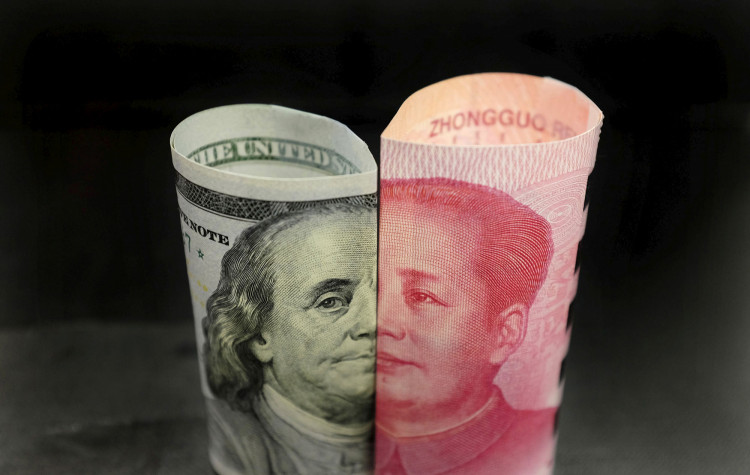In a move that appears aimed at reinforcing China's currency, the yuan, an autonomous regulatory entity supervised by the People's Bank of China (PBOC) has instructed key state-owned banks to diminish interest rates on dollar deposits, according to insiders with first-hand knowledge of the matter.
This step could motivate Chinese businesses, particularly those in the export sector, to process their foreign exchange earnings in yuan, which has recently slipped to a six-month low against the dollar. The flourishing US currency, along with the Federal Reserve's rate hikes, have incentivized Chinese companies to accumulate dollar earnings.
As per the sources, who chose to remain anonymous as they are not permitted to address the media, the maximum interest rate Chinese banks can now offer on dollar deposits exceeding $50,000 stands at 4.3%, down from the previous limit of 5.3%. The new rates came into effect on Tuesday, marking a reduction of up to 100 basis points.
The yuan is under pressure due to a cocktail of unfavorable economic indicators, a growing yield discrepancy with the US, forthcoming corporate dividend payments, and ongoing capital outflows from foreign stock and bond sales. Since January, when China lifted its border restrictions, the yuan has depreciated more than 6% against the dollar, making it one of the poorest-performing Asian currencies this year. The latest exchange rate stands at 7.1199 yuan per dollar.
The PBOC, last month, pledged to staunchly regulate extreme exchange rate fluctuations and explore ways to enhance the self-regulation of dollar deposits.
A burgeoning interest rate discrepancy between the world's largest two economies had sparked a "carry trade" scenario, where investors use a low-yielding currency to fund the acquisition of a higher-yielding one to generate profits.
The decision to decrease the cap on dollar deposit rates may be perceived as an "official counter-cyclical measure" to tackle potential subsequent carry trade risks, according to a yuan trader.
The PBOC has thus far maintained composure, even as the yuan crossed the significant psychological threshold of 7 per dollar in May. However, market analysts and traders suspect that if the scale and speed of the yuan's depreciation become disconcerting, the PBOC may deploy policy interventions.
The PBOC did not immediately reply to a request for comment. During past depreciation cycles, the central bank has cautioned against one-directional yuan betting and utilized a 'counter-cyclical factor' to moderate possible "herd effects" in the market, while tweaking its FX risk reserve ratio to defend the yuan.
Reuters reported on the sources' comemnts.






